|
I remember the day we got our first computer. My brothers and I sat there mesmerized in the living room. My dad looked on proudly at the new setup with a big grin on his face while my mom flipped through the manual. We had a family computer. It was a Gateway desktop with Windows ’98 programming that we all fought over. My world had changed. My priorities now included a Mickey Mouse computer game. I’m not sure what my older brothers were doing on there back then (my guess is more sophisticated gaming), but I was adamant about getting my fair share of time. Everything about the computer appealed to me. From the imaginative world that I could now escape to, to the robotic crunching sound that the red floppy disk made when I inserted it into the machine. I think it was around the year 2000, I was about eight, when my mom told me about “Ask Jeeves”, a pioneer of the search engine frontier. My eyes lit up when she told me I could ask Jeeves practically anything and get an answer. Before I knew it, the internet was my friend. While my brother was quick to point out my lack of classmates coming over after school compared to the boys, I was quite comfortable in my own little world, printing out recipes to make my own cookbooks, experimenting with ClipArt and WordArt, and doodling abstract shapes like so many of my generational peers did on Microsoft Paint. For a young girl who always had a lot of personal projects, the internet was a whole new world full of endless opportunity, exploration, resources, and creativity. It wasn’t until 7th grade that my relationship with the internet grew complex. After my family’s third move, I had developed a more intimate relationship with what was once strictly a powerful tool used to facilitate my numerous interests and hobbies. The internet, much like my life at the time, was changing fast. It seemed like overnight the World Wide Web became personalized. Now there was Myspace, chat rooms, blogs, and a new network of people and information that would always be there for me - no matter where I went to school or what my zip-code was. I could feel connected at any given time. I logged in religiously to see what my old friends were up to. I watched them slowly but surely moving on without out me, as I tried desperately to find a group of friends that would accept me, so that I didn’t have to go to the library and keep looking for books when I was done eating my lunch. Being online after school made me feel like I was a part of a community that nobody could take away from me. It’s easy for me to look back at the Myspace days and feel nostalgic. I won’t deny that sometimes I miss coming home from school, cracking open a Coke, popping some antibiotic laden popcorn chicken in the toaster oven, and logging in. I never thought all of those times that I was coding my background, or making graphics for myself and my friends that I would end up with a career in graphic design, or a creative profession in general for that matter. To me, it was simply a form of expression. It was a realm suited perfectly for the outgoing introvert. Suddenly, the introverts and the extroverts were all connected. This connection, I believe most bored suburban kids at that time were craving. I remember getting to know people from other schools and crushing on boys from nearby towns. I remember sharing and discovering new music. I remember reading surveys people would post to get to know each other better - perhaps even on a more expansive level than we would have when we were sitting next to each other in science class. For kids that were tired of feeling rejected and misunderstood, we were starting to feel a sense of belonging. In a culture that tended to promote individualism more than community - we were starting to feel like we weren’t so alone. However, it was also around this time where I think the internet gained complexity for almost everyone. The invention of social media resulted in the birth of our online personas. Suddenly there was a separation between who we were online, and who we were as real people. Now we had the ability to disguise who we really were with who we wanted people to think we were. Those of us (a good majority I assume) without parental control or guidance, were left navigating this new world that nobody really understood. Even if our parents were involved, I’m not sure they could have protected us from the changing technological world that we were born into. Suddenly, the pressure to be liked in public was now magnified by the pressure to be liked online - a popularity that was both incredibly inauthentic and unfortunately more measurable, as we sat in front of screens and watched our self-worth be dictated by the amounts of thumbs up correlated to a photo of our face, our cars, our friends, and the parties we were or were not invited to. All of a sudden there was a cultural shift. We saw people using the internet as a platform, as a stage, as an identity. We saw heavy eyeliner and graphic song lyrics. We saw photoshopped skin and whitened teeth. We saw popularity contests and hurt feelings over ever-changing “Top 8” hierarchies of friends. We saw once historically personal love notes between boyfriends and girlfriends go public. We saw breakups, slander, and shameless bullying. We all learned quickly through emotional trial and error, what the internet liked about us and what it did not. Slowly over time, we have let this game of acceptance and rejection dictate what we share about ourselves with each other. Some of us reject the notion that we take social media seriously. However, I think it’s more often either naive or insincere for anyone in these current times - for anyone with a social media account to claim that they don’t. Now here we are in 2018, with timelines full of selfies, cars, travel destinations, six-pack abs, and color coordinated families, all flashing our best smiles in hopes that we will break X amount of likes, or show X person we are happy without them. Despite the attempts to be authentic, despite the attempts to be raw and real, I can’t help but think it’s impossible for any of us to publish anything online, without the fear of our egos being bruised, or the judgement our content can and will get from others. When my grandmother passed away at the beginning of this year, I realized I had a lot of questions about her as a person, and a lot of questions about myself. I started digging for stories between the pages of her photo albums and yearbooks. I couldn’t help but go back to my social media profiles and think about the false image I had painted for myself. I was disturbed by the idea that the photos and words I leave behind might be the only records left of my time spent here on Earth. I can’t help but think about the youth to come in the generations after me, and if “blogs” will be these old forgotten archives of the past, like old journals left by settlers of the West found between the floor boards of old homes that now sit in sections of libraries with scarce visitors. I think about those old worn pages describing their (often seemingly mundane) daily lives full of humility and error, expected perhaps in their humble creation, to not meet the eyes of anyone else's but their own. We can rely on these writings from the past as primary resources in which we stitch narratives together to find out information about our ancestors, and connect with one another through different eras. We find ourselves within their stories, because they described their life as they really saw it. I think about the limited resources, and the inability for many to read and write, and how much thought and consideration must have gone into a publication or a letter, before you had something as instantaneous and accessible as a Facebook status or a Wordpress post. It’s incredible to compare how polar opposite our journalistic storytelling practices are now. Most of what is circulating online has nothing to do with the true human experience. Most of what is circulating online right now is full of hidden agendas, SEO, marketing, and affiliated links attached to products we don’t need. Most of what is written now, is written with the intention to be liked. Most of it is intended to be digested easily. If we look at Madison Avenue for sparking our mass consumerist culture, and Big Pharma for our inflated prescription costs, I think it’s only fair for us to hold ourselves accountable for the toxic part of our culture that we all have a part in creating. As I grow older, and closer to the idea of starting my own family, I find myself thinking less inward and more collectively as a human being. As most of us around the world have come to accept that we need to take on more responsibility when it comes to the environment, education, and social justice, I can’t help but worry about the generations to come and the unrealistic perception we are leaving behind for them. For the first time in history, the general public, the commoners, the every day people, have the ability to write and publish the history books. For the first time, we have the power to record a real account of what happened. Yet with this golden opportunity we are still choosing to buy into the idea that the pages are better off filled with embellished narratives and misleading personas, instead of who we are as a people - flaws and all. What will we say to our daughters, when we try to encourage them that they are beautiful the way they are, but we ourselves have edited out our blemishes, scars, and wrinkles for fear that we are not good enough? Perhaps all of the things we have been hiding away are the things that could help our great-grand daughters heal their spirits, or could help a young man searching for answers see he’s not broken for feeling lost and confused at times. We have valued feeling socially liked and accepted more than being ourselves. How can we really accept self-love, if the first thing we do when we look at a photo of ourselves is look at what we need to edit, crop, and change? I want to leave something behind that reflects who I am as a person. I want to learn to look at internet like I did when it brought me a world of wonder and connectivity, not a place where I fear persecution. As a professional “creative” (for the record I heavily dislike the term- everyone is creative to some degree), I often find myself caught between the pull to express myself candidly and the pressure to come off polished and professional. I am confident I am not the only person who feels stuck between these two walls. However, I have come to the realization that any true artist (or human being for that matter), comes with their own story and set of complexities that make us all unique. I have discovered that by putting myself in any box, I am doing a disservice not only to myself but the work that I produce for other people, which often gets stifled when I censor myself. We cannot expect perfection from one another. But more importantly, we cannot expect perfection from ourselves. Perfect does not exist. I’m starting to write so I can connect with people on a deeper level again, and so I can start holding myself accountable for the values that I find important. I have no theme, subject, or tagline to put under my name for these pages. My goal for myself is to make the internet a positive space again, by stripping away the falsities and pressures that society has evolved over time. I hope that if anyone in the future reads this, they will at least have a record that our lives were not as curated as they appeared. We all get blemishes, heartbroken, and make mistakes. Our dishes pile up, we have debts and doubts, we fail classes, we lose jobs, and we fail every day. I want people to know that the pain, confusion, and fear that they feel was felt here too. I want them to know at one time before the mason jars, the detox teas, and the subway tiled kitchens - when the internet was just a new horizon, it was a place where people discovered that we aren't so different from one another. The power of the internet when used responsibly and genuinely, has the ability to connect us with each other and make us realize that in this globalized world that can often feel overwhelming - we really are not so alone. Thank you for reading my words. I welcome and encourage healthy dialogue in the comments below. All my best, -M
6 Comments
A study I did on Illustrator considering typography and color theory. I was really thinking a lot about how I would approach it from a screenprinting angle. (Not sure why I picked Coldplay lyrics haha).
|
AuthorMegan Osterhout ArchivesCategories |
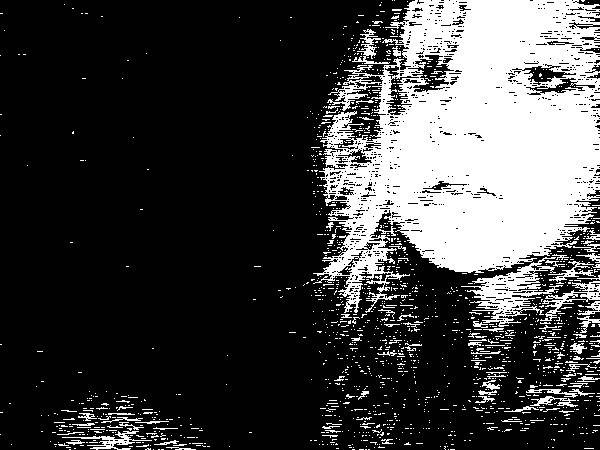
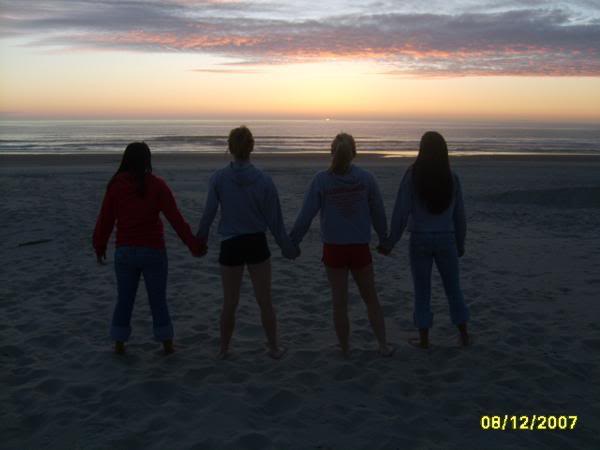
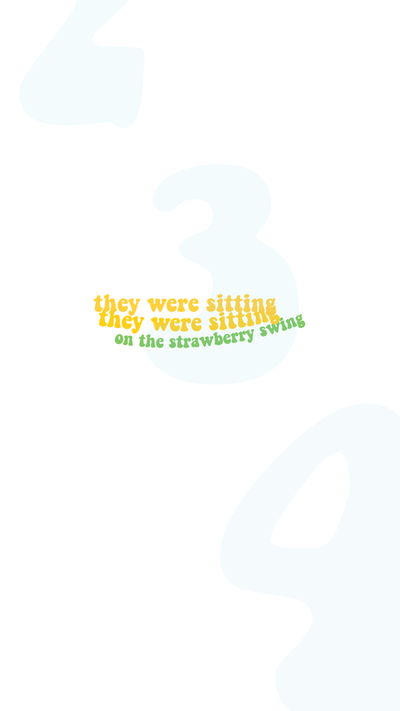
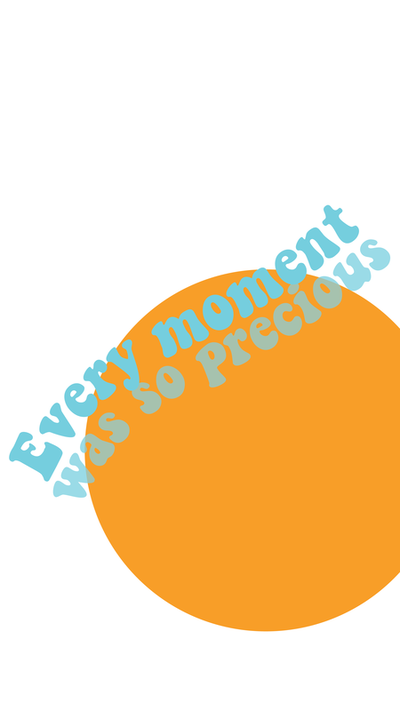
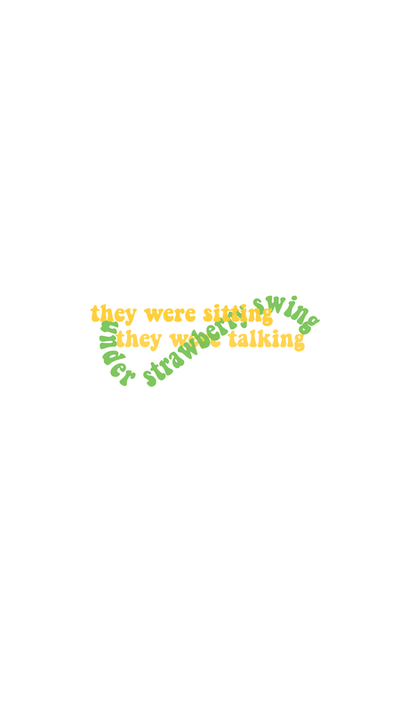
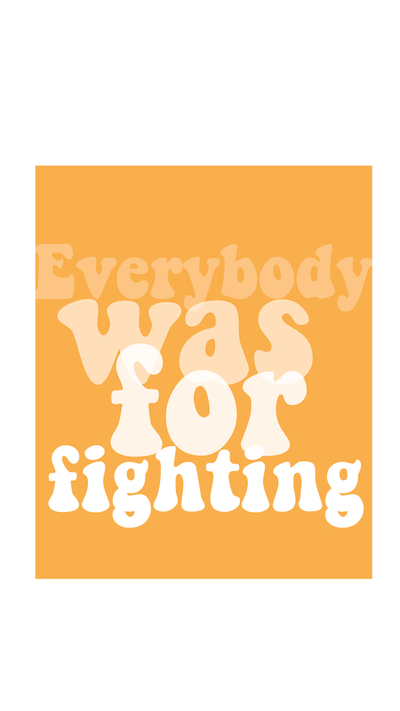
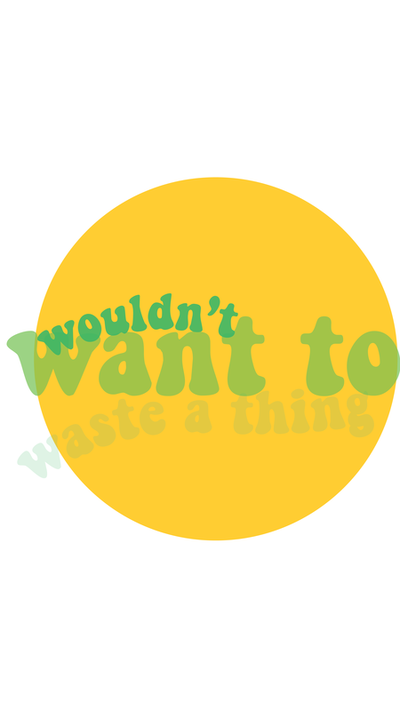
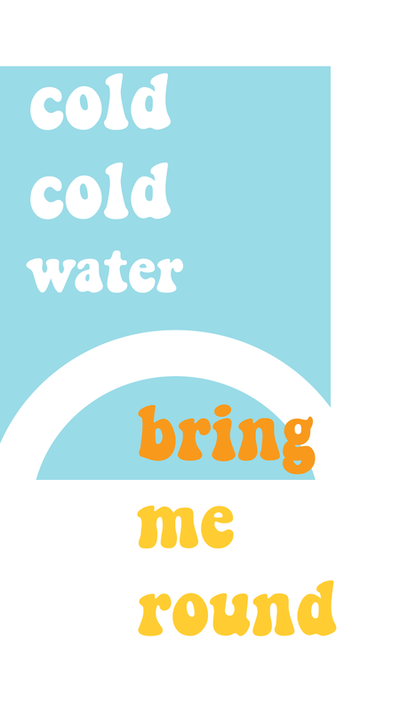
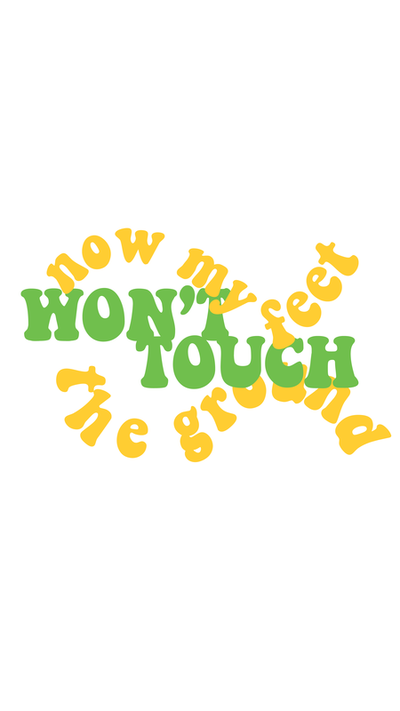
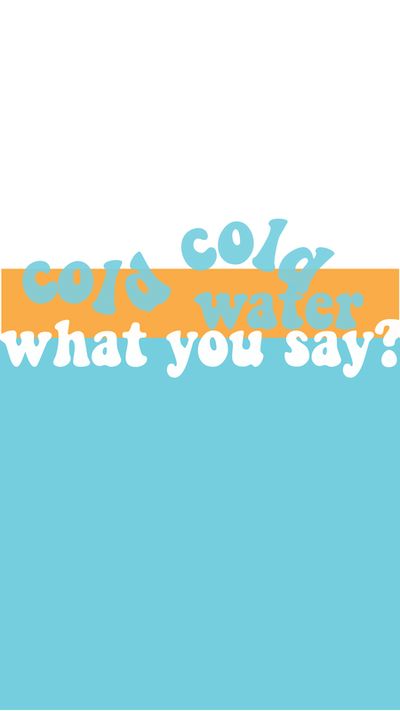
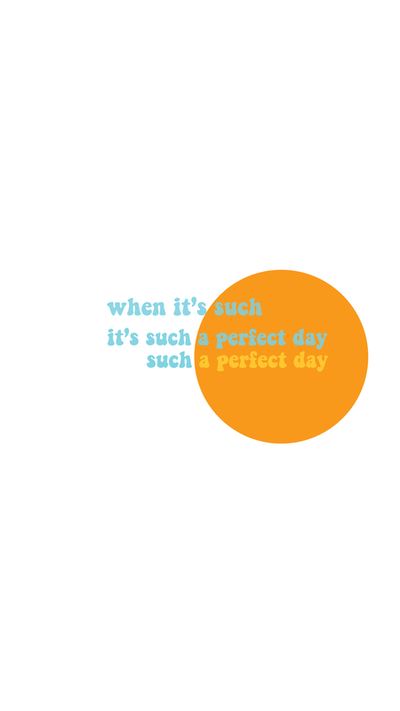
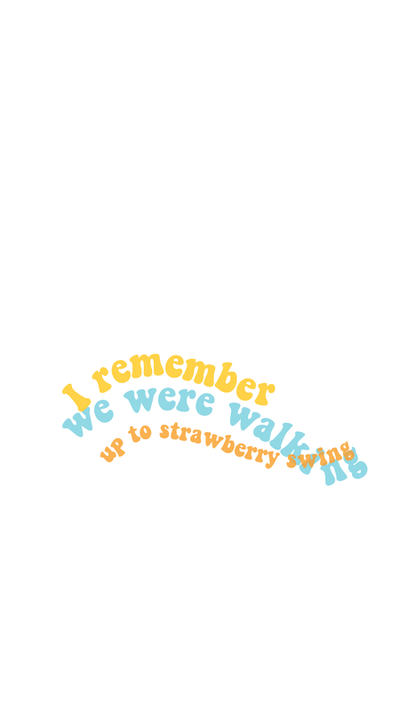
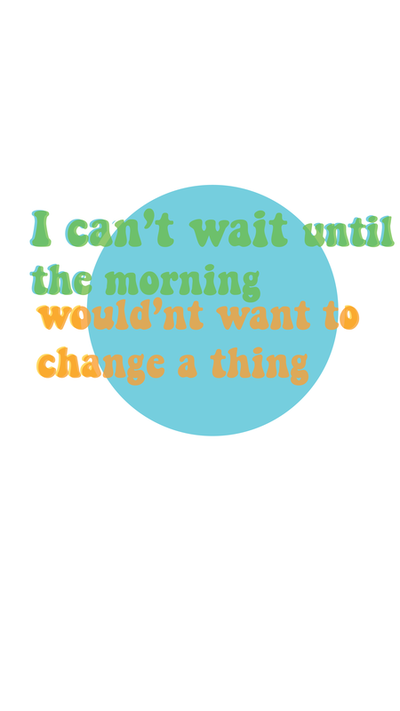
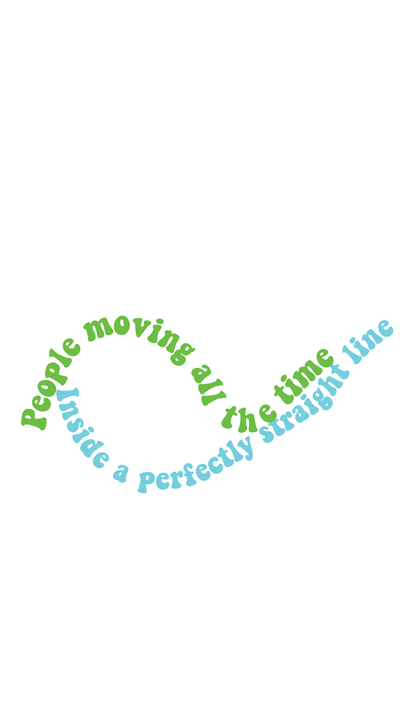
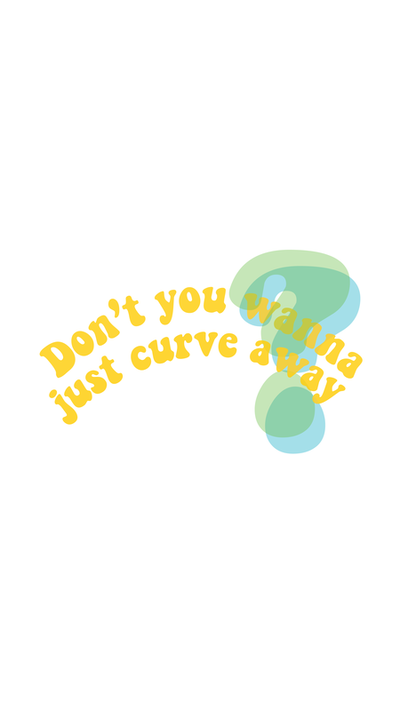
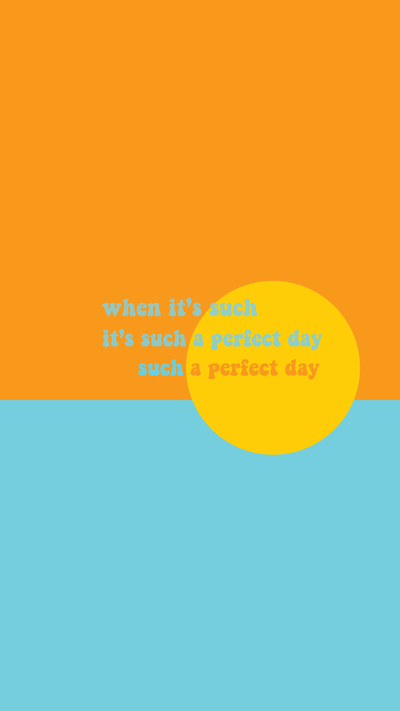
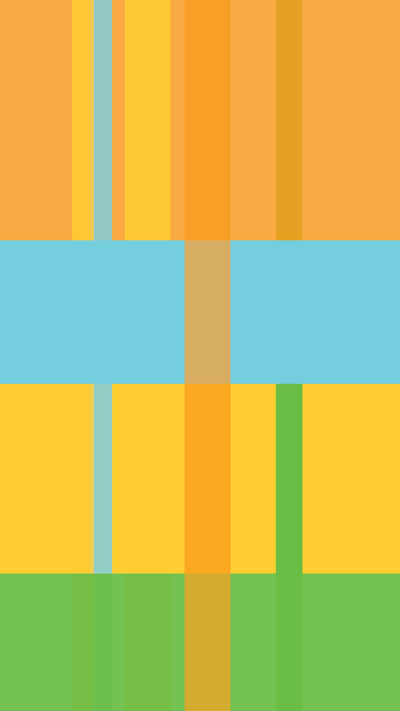
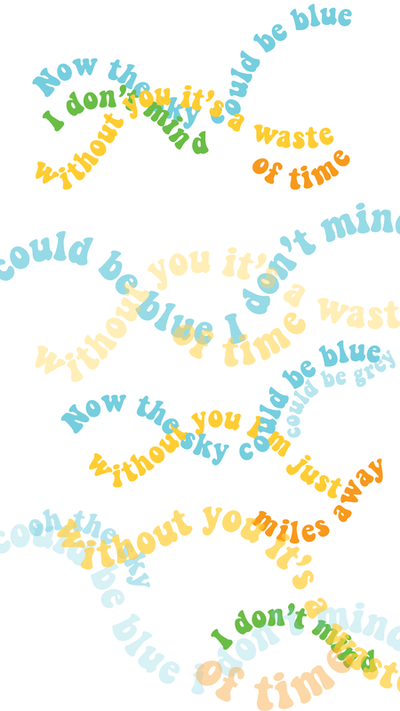
 RSS Feed
RSS Feed
